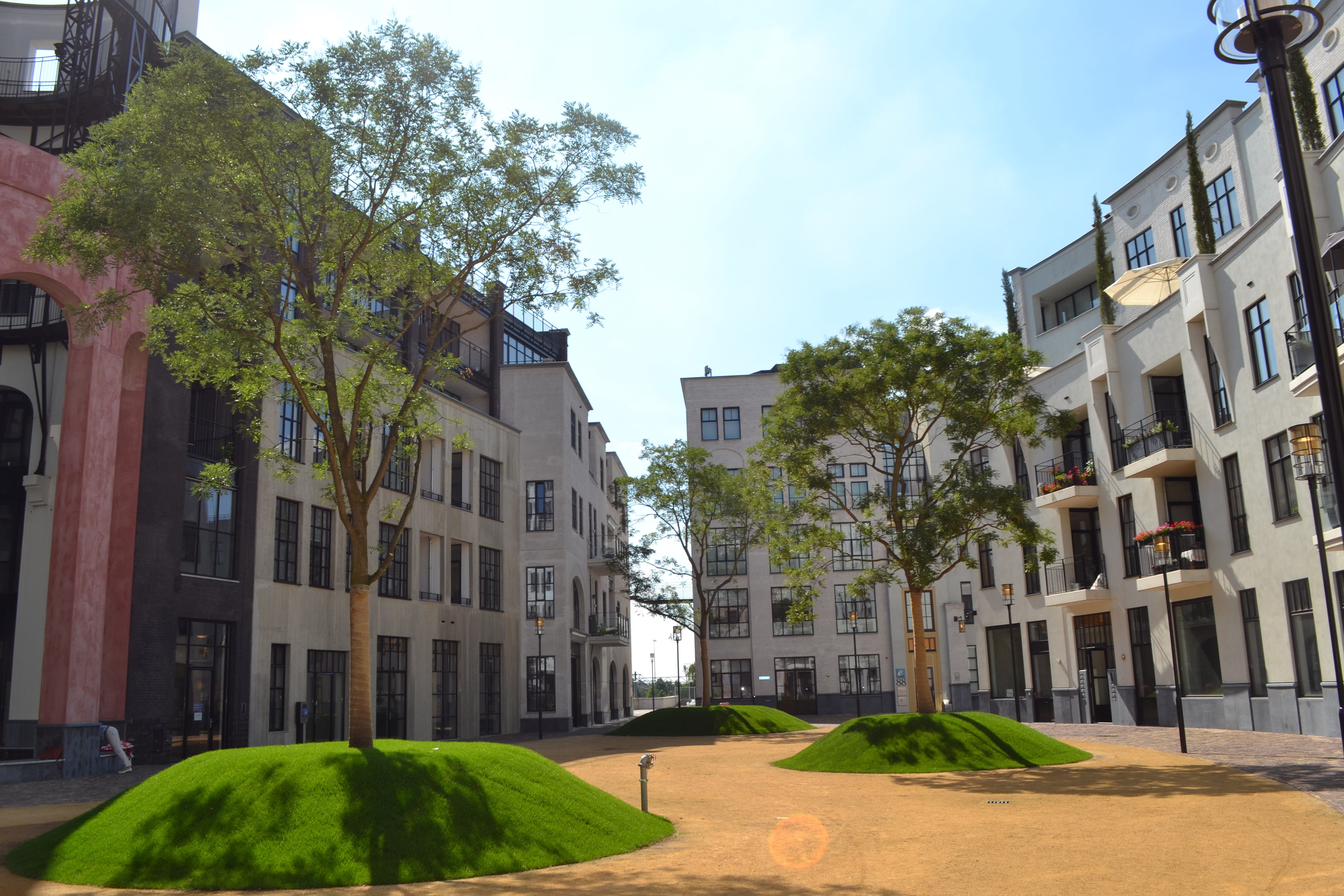Cardiff calls for early engagement on SuDS
Wednesday 24th June 2020

Trees deliver the greatest multifunctional benefits across the
spectrum of green urbanisation applications at roof podium and pavement level.
The second of Polypipe Civils & Green Urbanisation’s e-Roadshow events on Realising Resilience put the spotlight on Wales, where it is now a statutory requirement to have SuDS in place to manage on-site surface water.
All three guest speakers, from the worlds of local authorities, architecture and planning, expressed the view that you must plan for SuDS, and now green urbanisation, from the outset to achieve the best outcomes.
“The principal advice from every speaker was that you must consider SuDS at the design stage if you want to achieve the desired aesthetic, resilience and biodiversity outcomes,” explained Sean Robinson, Specification Director, who hosted the event. “You can’t simply plan a development and then tack on a SuDS element as an afterthought.”
Matt Bradley, National Specification Manager, Civils & Landscape, opened proceedings with an explanation of how Poplypipe’s green urbanisation approach can ‘hardwire green assets into the SuDS solution’. He also emphasised the importance of collaboration throughout the design process. “The benefits of green urbanisation can’t be realised by one body on its own,” he said. “You need early engagement between stakeholders and manufacturers because cooperation is the key to success.”
The notion that approvals from the SuDS Approval Body (SAB) added time and cost to development got short shrift from Ian Titherington, SAB Officer for Cardiff City Council. “It’s an urban myth,” he declared. “If you get the SAB officers engaged early in the design then it will be cheaper and faster to design, get approved and get built.”
Both Ian and the next speaker, Kathryn Williams of Kew Planning, pointed out that this legislation covers virtually all construction – even down to a residential extension or patio. Kathryn argued that not only was this far too wide-ranging but also the whole process needed amending to be fair and workable in order to promote more SuDS schemes.
For his part the third speaker, architect Noel Isherwood, saw the new requirement as encouraging a rethink in housing development design, with SuDS helping to mitigate the dominance that highways has always had.
“Incorporating green urbanisation into a housing scheme means that densities can be higher but without sacrificing amenity. Interstitial areas can be transformed as places where people can meet and spend time. No longer are amenity areas just bits of land that are left over at the end of the design,” he said.
“The beauty of SuDS is that highways is no longer the major driver for developments, so we can explore better ways of designing the built environment. It becomes all about placemaking, rather than the car.”
Polypipe’s next e-roadshow on 30 June examines Green Urbanisation in the context of Birmingham and is entitled Planning and Development to Enhance Health and Wellbeing. Realising Resilience events centred on London and Scotland follow on 7 July and 14 July respectively.
All of the guest speaker presentations for the Wales e-Roadshow event can be viewed at https://www.polypipe.com/news
For information on the full programme and details of how to register visit: - https://www.polypipe.com/roadshow-2020


